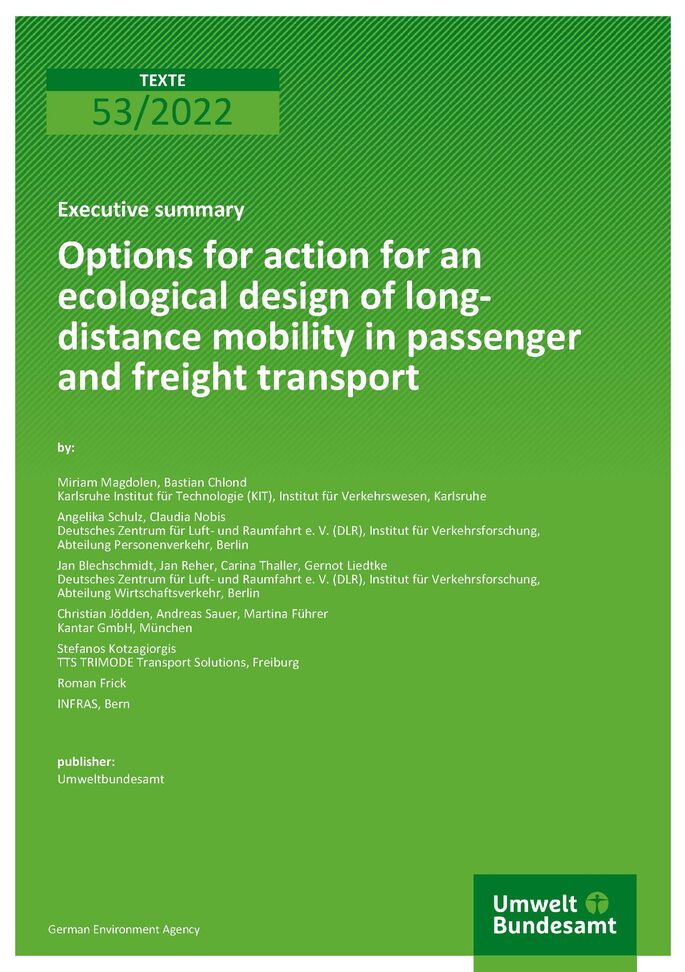
Options for action for an ecological design of long-distance mobility in passenger and freight transport
Executive summary
Greenhouse gas emissions from transport are mainly determined by long-distance traffic between conurbations in passenger transport and traffic hubs in freight transport. In the course of the project "Options for action for an ecological design of long-distance mobility in passenger and freight transport", strategies and solutions were identified that effectively reduce the greenhouse gas emissions caused by long-distance transport.
Concerning passenger transport, the project describes the long-distance mobility of people in Germany on the basis of an extensive literature and data analysis and supported by a model approach and a complementary survey. Based on the results, a broad spectrum of possible options for action for the future ecological design of long-distance mobility in passenger transport is developed.
With regards to freight transport, the project explains the relationships between the individual modes of freight transport in detail to be able to assess how and to what extent the competition can be intervened. Based on a systematic literature research and synthesis, it is shown which different transport mode affinities by the type of goods and cargo as well as delivery distances exist and how these are related to the mode-specific differences in transport costs.
Forschungskennzahl 3717 58 102 0 Verlag German Environment Agency Zusatzinfo PDF ist barrierefrei Dateigröße 839,39 kB Druckversion nicht verfügbar